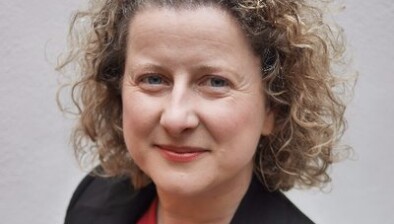Child Law Project raises concern about lack of residential placements for children with complex needs

Dr Maria Corbett
The Child Law Project (CCLRP) has identified the lack of secure and step-down placements, mental health concerns, unaccompanied minors and parental neglect as the key features of its latest volume of reports of cases where the State sought orders to take children into or keep them in care.
Severe mental health difficulties were the core concern in six of the 30 cases included in the latest volume, including two young girls involuntarily detained due to self-harming behaviour and anorexia nervosa; two children in care who needed mental health services to support them to deal with childhood traumas; and two concerning children who are presenting with complex needs including mental health issues, disabilities and addictions.
One of the latter two cases concerned a boy currently detained in a youth detention centre. He would be effectively homeless if released as Tusla had no suitable residential placement for him. The secure care committee had refused to admit him to secure care and the judge directed the committee to give reasons and, if his admission was still refused, to attend court to explain why. The case continues.
Dr Maria Corbett, CEO of the Child Law Project, said: “In a number of cases within this volume, CAMHS and the HSE disability services come in for sharp criticism in how they have responded to referrals and requests to assess and support children in care.
“Despite acknowledgement of the need for inter-agency cooperation, cases involving child protection, mental health and disability continue to result in situations where children slip through the cracks.
“In two separate cases of teenage boys with complex needs their placements broke down due to property damage and assaults on staff, for which the boys concerned are facing criminal charges and the CFA is struggling to find new and appropriate placements that can meet their needs.”
A further six of the 30 cases in the volume concern separated children, many of whom had experienced significant trauma in their home countries and on their journey to Ireland. Two had spent time in refugee camps, one had fled the Taliban and another had fled an arranged marriage to a member of an Islamic militant group.
Efforts were made to reunify these children with their families; however this can be complicated by safety concerns and a lack of information on their whereabouts, leading to stress and anxiety for the children. Most of these children were doing well in their placement and with their education, although a few had significant health and mental health needs. One boy told the court he had food and peace of mind and gave the judge a hand-made ‘thank you’ card.
The volume also contains a special report with a summary of the weekly ‘call over’ list of matters for hearing held in the Dublin Metropolitan District during a ten-week period in late 2021, demonstrating the range of issues concerned.
Regarding the call-over report, executive director Dr Carol Coulter said: “Our overview of 739 cases listed for hearing over a ten-week period in Dublin provides a snapshot of the scale and complexity of child care cases coming before the courts in the capital. It adds further weight to the mounting evidence for the urgent establishment of a dedicated national family court.”











